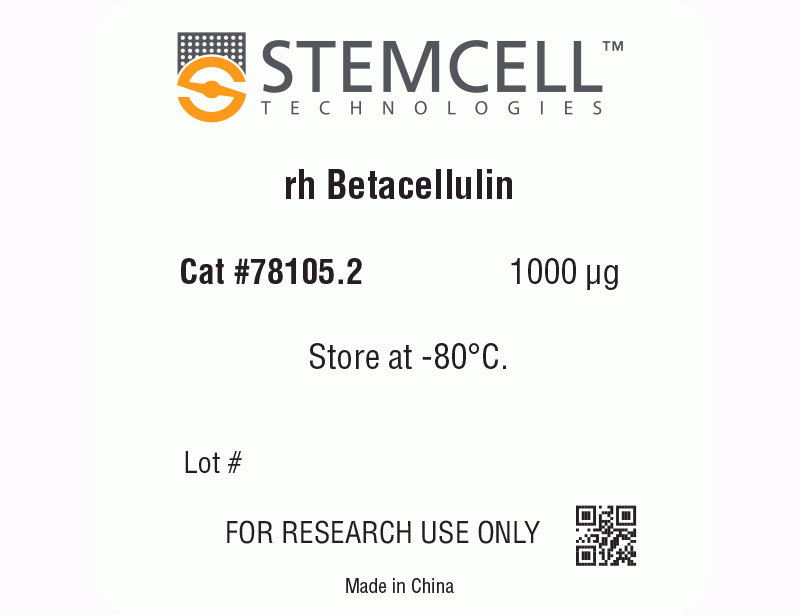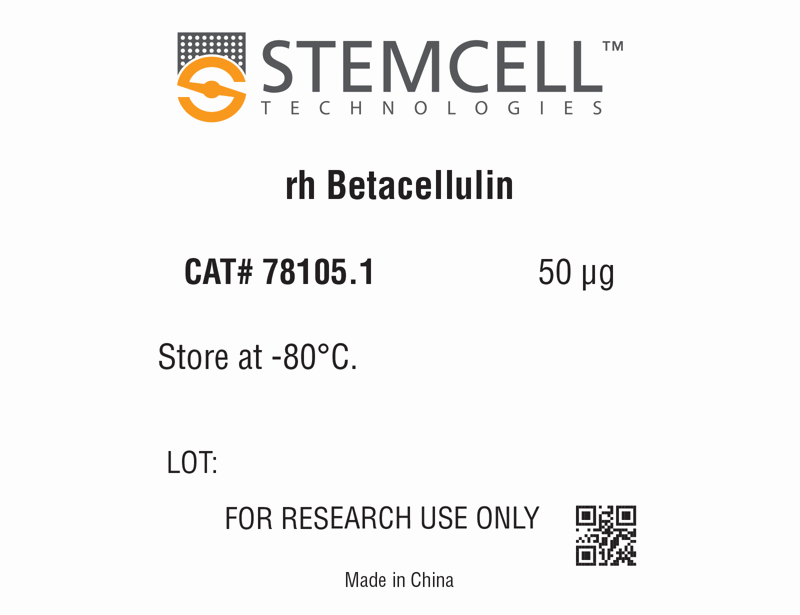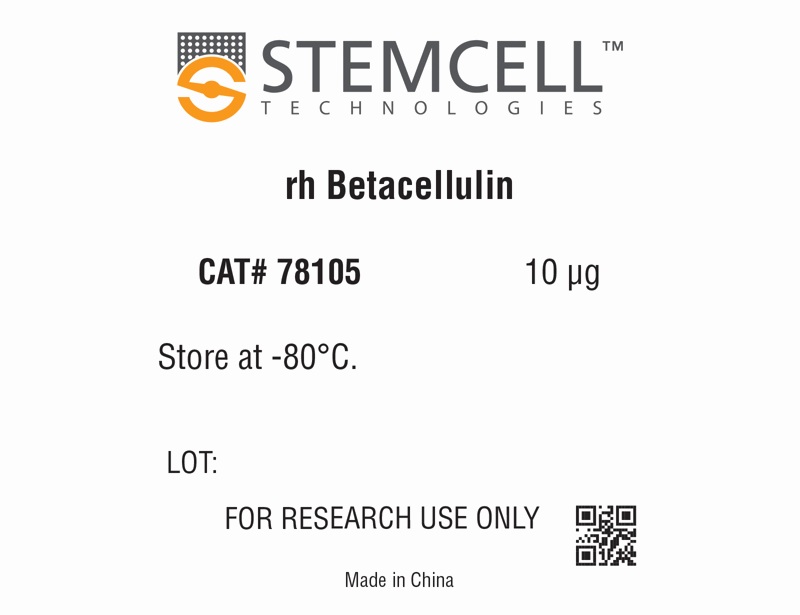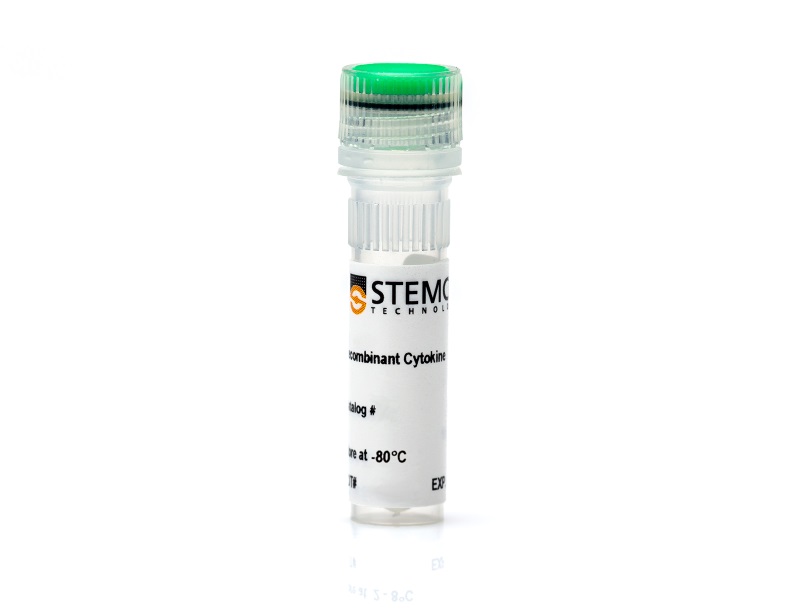Human Recombinant Betacellulin
Betacellulin
概要
Betacellulin is a member of the epidermal growth factor (EGF) family, and signals through EGF receptor and ERBB4. It activates ERK and AKT pathways, which induces neural stem cell proliferation and prevents spontaneous differentiation in culture. Betacellulin stimulates the expansion of neural stem cells, transit-amplifying cells, and neuroblasts derived from subventricular zone and dentate gyrus (Gómez-Gaviro et al.). It is a potent mitogen for retinal pigment epithelial cells and vascular smooth muscle cells. Betacellulin down-regulates E-cadherin expression in ovarian cancer cell lines via MEK/ERK1/2 and PI3K/AKT signaling pathways, thus increasing cell migration (Zhao et al.). It is a modulator of interferon (IFN) response and enhances anti-viral effects of IFN (Al-Yahya et al.). Betacellulin is expressed in pancreatic α cells, β cells, and duct cells. It induces the proliferation of pancreatic cancer cell lines, inhibits apoptosis, promotes the neogenesis of β cells, and converts non-β cells into insulin-producing cells (Kawaguchi et al.; Miyagawa al.; Saito et al.).
Subtype
Cytokines
Alternative Names
BTC
Cell Type
Endoderm, PSC-Derived, Neural Stem and Progenitor Cells
Species
Human
Area of Interest
Neuroscience, Stem Cell Biology
Molecular Weight
9.1 kDa
Purity
≥ 95%
技术资料
| Document Type | 产品名称 | Catalog # | Lot # | 语言 |
|---|---|---|---|---|
| Product Information Sheet | Human Recombinant Betacellulin | 78105, 78105.1, 78105.2 | All | English |
| Safety Data Sheet | Human Recombinant Betacellulin | 78105, 78105.1, 78105.2 | All | English |
数据及文献
Data
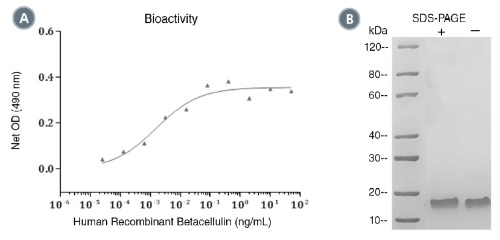
(A) The biological activity of Human Recombinant Betacellulin was tested by its ability to promote the proliferation of BALB/c 3T3 cells. Cell proliferation was measured using a fluorometric assay method. The EC50 is defined as the effective concentration of the growth factor at which cell proliferation is at 50% of maximum. The EC50 in the above example is less than 0.01 ng/mL. (B) 2 μg of Human Recombinant Betacellulin was resolved with SDS-PAGE under reducing (+) and non-reducing (-) conditions and visualized by Coomassie Blue staining.

